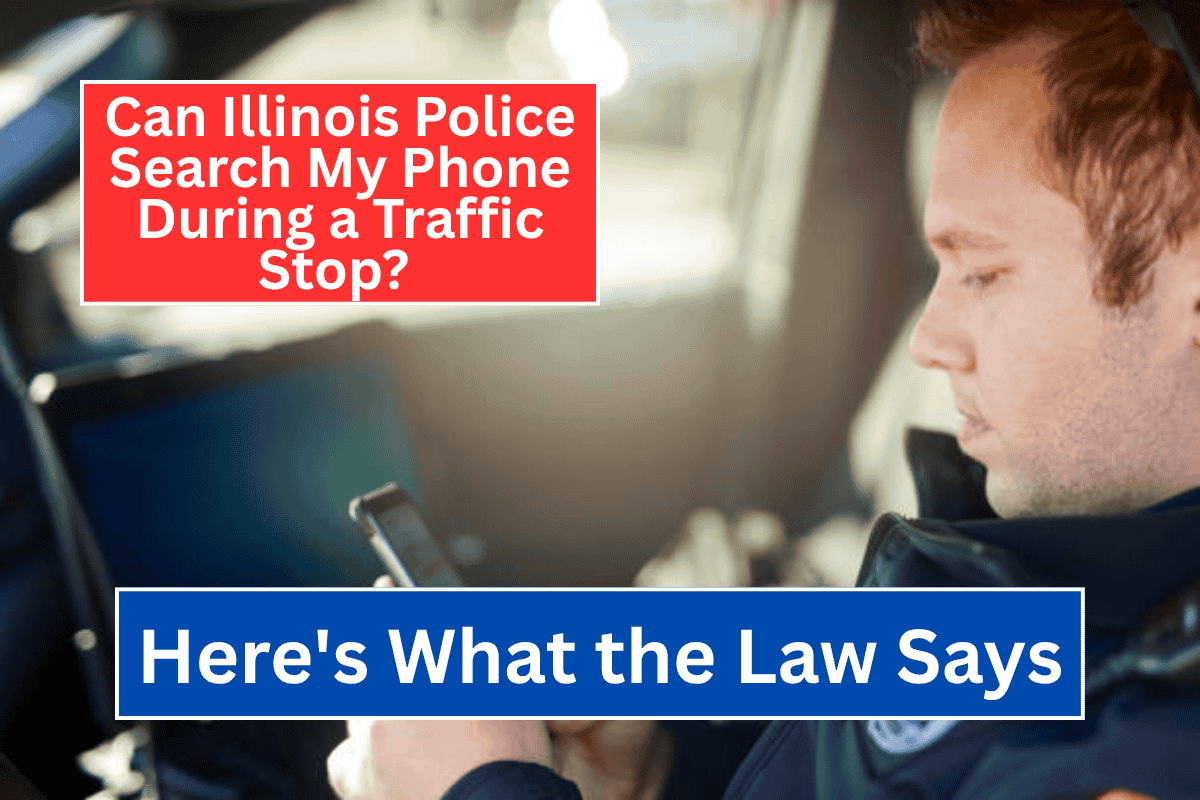With so much personal information stored on our smartphones—from private messages and photos to banking and location data—it’s only natural to wonder about your rights when you’re pulled over by the police. In Illinois, like in the rest of the U.S., the law protects your digital privacy.
But are there exceptions? Can an officer look through your phone if you’re stopped for a traffic violation?
Here’s a clear and simple explanation of what Illinois law—and the U.S. Constitution—says about police access to your phone during a traffic stop.
Are Police Allowed to Search Your Phone in Illinois During a Traffic Stop?
No, not without a warrant or your permission.
Under the Fourth Amendment to the U.S. Constitution, law enforcement cannot conduct an unreasonable search or seizure. This means that, in most cases, Illinois police need a warrant to search your phone.
Even if you’re pulled over for a traffic stop, an officer cannot force you to hand over your phone or unlock it unless one of a few legal exceptions applies.
This was made clear in the landmark 2014 U.S. Supreme Court case, Riley v. California. The court ruled that phones cannot be searched without a warrant, even if a person is arrested.
Exceptions: When Can Police Search Your Phone?
There are limited exceptions to the warrant rule:
1. Consent
If you voluntarily allow the officer to look through your phone, they do not need a warrant. But you are not required to give this consent. Saying “no” does not mean you’re hiding something—it means you’re exercising your rights.
2. Exigent Circumstances
In rare situations—such as if officers believe there’s an immediate threat to life or that important evidence could be destroyed—police may perform a search without a warrant. However, courts closely examine such claims afterward.
3. Warrant with Specific Authorization
Police may get a search warrant from a judge that allows them to access your phone, including authorizing biometric unlocking methods like fingerprint or face ID. Without this, they cannot force you to unlock your phone using biometrics.
Can You Be Forced to Unlock Your Phone?
No—unless there is a court order or warrant.
Officers cannot legally compel you to provide your passcode or biometrically unlock your phone (like using Face ID or fingerprint) without a valid warrant that clearly states it. You also have the right to remain silent and avoid answering questions about your phone’s contents.
Remember: unlocking your phone without a warrant gives up your right to privacy over its contents.
What Should You Do If an Officer Asks to Search Your Phone?
Stay calm and respectful. Politely decline consent.
Here’s what you can say:
“I do not consent to a search of my phone.”
If they insist or attempt to search without a warrant:
Do not physically resist
Ask if you’re free to go
Contact a lawyer as soon as possible
Even if the officer believes you’ve done something wrong, you are still protected by the law.
Can Police Take Your Phone If You’re Arrested?
Yes, but they still need a warrant to search it.
If you’re arrested, police may seize your phone as evidence. However, they still cannot access your messages, apps, photos, or files without a search warrant. Any search done without proper legal authority could violate your rights and be challenged in court.
In Illinois, police cannot search your phone during a traffic stop without your consent or a valid search warrant. Your phone contains deeply personal data, and the law recognizes that.
Understanding your rights helps you protect your privacy and avoid unlawful searches. If your rights are violated, you can take legal action with the help of a civil rights attorney.












